I now know that you should wait until your baby is strong to get pregnant.
30-year-old Yahaya and 22-year-old Salamatu and their two daughters live in Rido village in the state of Kaduna in northern Nigeria.
The bustling village is dwarfed by the towering gas flares of the Kaduna oil refinery where Yahaya works. Flaring of gas like this can damage the health of people living nearby, causing respiratory problems and skin rashes.
But it was something even closer to home that the family learned was also harmful – the water in their well.
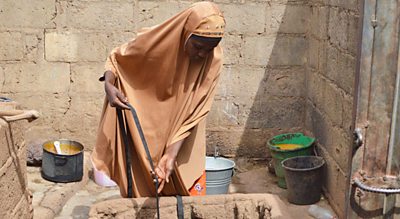
Practical health advice
It was only after listening to radio programme Ya Take Ne Arewa – which means 'What's Happening in the North?' in Hausa – that they found out what to do.
"We used to drink water regardless of whether it was clean or not," Salamatu says, while washing up her family's dishes in the small, high-walled family compound.
Drinking untreated water, she says, gave their children diarrhoea and once they had to take their daughter Zainab, who's now four, to hospital.
"But from listening to Ya Take Ne Arewa, we learned to treat our drinking water," she says, "And now we do not drink water unless we're sure it is clean."
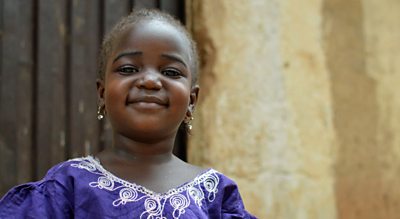
Life-changing information
It's not just how to treat water which the family have learned from the show.
"The programme also told us about the dangers of stopping women from going to antenatal appointments," Yahaya says. During Salamatu’s first pregnancy, Yahaya did not allow her to travel to the hospital to attend any antenatal check-ups.
But during her second pregnancy, he allowed her to go for check-ups and much to Salamatu's joy, she had a healthy baby girl, called Khadija.
Salamatu also says that she particularly liked a programme about child spacing. "The episode was fantastic. I now know that you should wait until your baby is strong to get pregnant and that if a woman rests after delivery, her life will be better."
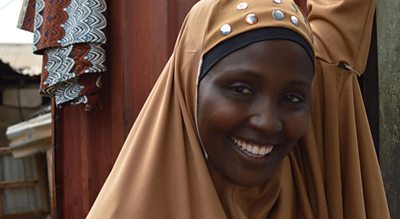
Her husband, meanwhile, particularly likes how the programme travels far and wide to gather stories. "One thing that thrills me about the programme is how it enters the nooks and crannies of northern Nigeria to find out what the actual situation is and to enlighten the public about what is good or otherwise."
"I make sure that I listen wherever I am - in the bush or anywhere - to make sure that I benefit from what’s discussed."
Ya Take Ne Arewa is produced with funding from USAID.
Stories of change
-
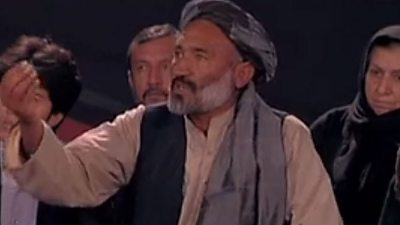
Abdul Bari Bawar, Afghanistan
After taking part in national debate show Open Jirga, community elder Abdul took the format home with him and persuaded his local radio station to make their own version for southern Afghanistan. -
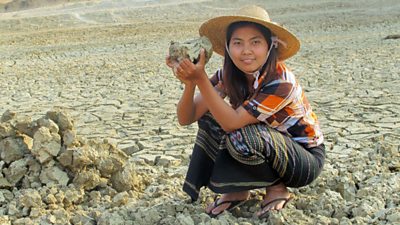
Kan At village, Myanmar
After hearing an episode about water conservation, young listeners of radio show Lan Lat Kyiar Sin (Bright Young Stars) were inspired to take action – rebuilding their village pond so that now it's ready to provide a reliable water supply all year round. -
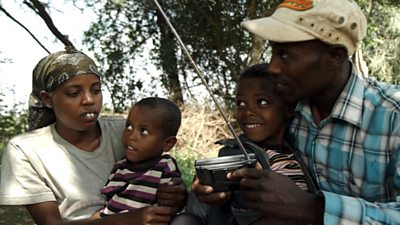
Dugo Boru and Aye Bejiga, Ethiopia
Dugo Boru wouldn't allow his pregnant wife Aye Bejiga to visit a health centre. But the radio programme Biiftuu Jireenyaa helped him change his mind. -
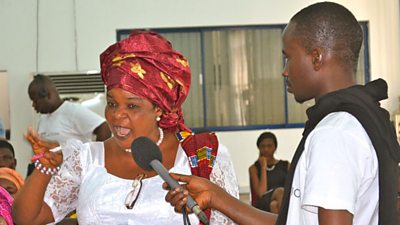
Oluchi Atu, Nigeria
Due to a poor electricity supply, trader after trader was leaving Lugbe AMAC market in Nigeria’s capital city Abuja. But then the chair of the market appeared on an episode of radio show Talk Your Own – Make Naijia Better. She asked the minister of power to help and a week later a new transformer was installed. -
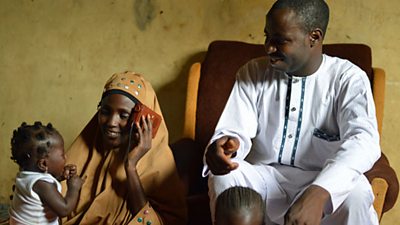
Yahaya and Salamatu, Nigeria
Yahaya Abdul-Rahman and his wife Salamatu never miss an episode of radio health programme Ya Take Ne Arewa. Thanks to the Nigerian show, they've learned the importance of antenatal care, birth spacing and how to treat their water to make it safe to drink. -
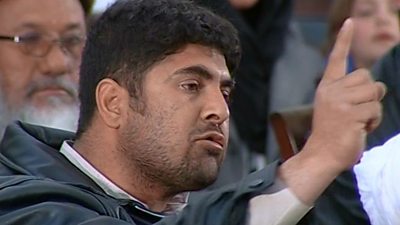
Asadullah Kamawi, Afghanistan
32-year-old disabled man Asadullah held President Hamid Karzai to account on TV debate show Open Jirga – and was invited to discuss his views on disability issues with Afghanistan’s entire cabinet. -

Dr Kedar Budhathokii, Nepal
Farmer Dr Kedar Budhathoki shared his pioneering techniques on Nepal’s TV and radio debate show Sajha Sawal – and transformed people’s livelihoods across the country. -
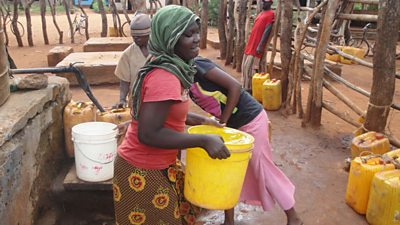
Mwera village, Tanzania
When their water supply was cut off due to a local dispute, the villagers of Mwera on the coast of Tanzania contacted their local radio station to ask for help. Journalist Mohammed Hammie tells how his report helped to resolve the problem - and turned the water back on.